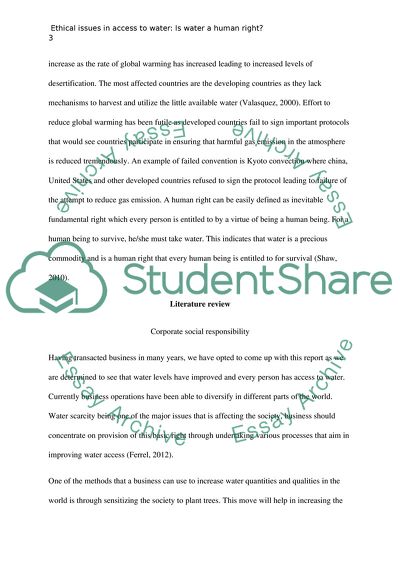Cite this document
(Ethical Issues in Access to Water: Is Water a Human Right Assignment - 2, n.d.)
Ethical Issues in Access to Water: Is Water a Human Right Assignment - 2. Retrieved from https://studentshare.org/social-science/1775210-ethical-issues-in-access-to-water-is-water-a-human-right-whr
Ethical Issues in Access to Water: Is Water a Human Right Assignment - 2. Retrieved from https://studentshare.org/social-science/1775210-ethical-issues-in-access-to-water-is-water-a-human-right-whr
(Ethical Issues in Access to Water: Is Water a Human Right Assignment - 2)
Ethical Issues in Access to Water: Is Water a Human Right Assignment - 2. https://studentshare.org/social-science/1775210-ethical-issues-in-access-to-water-is-water-a-human-right-whr.
Ethical Issues in Access to Water: Is Water a Human Right Assignment - 2. https://studentshare.org/social-science/1775210-ethical-issues-in-access-to-water-is-water-a-human-right-whr.
“Ethical Issues in Access to Water: Is Water a Human Right Assignment - 2”, n.d. https://studentshare.org/social-science/1775210-ethical-issues-in-access-to-water-is-water-a-human-right-whr.


